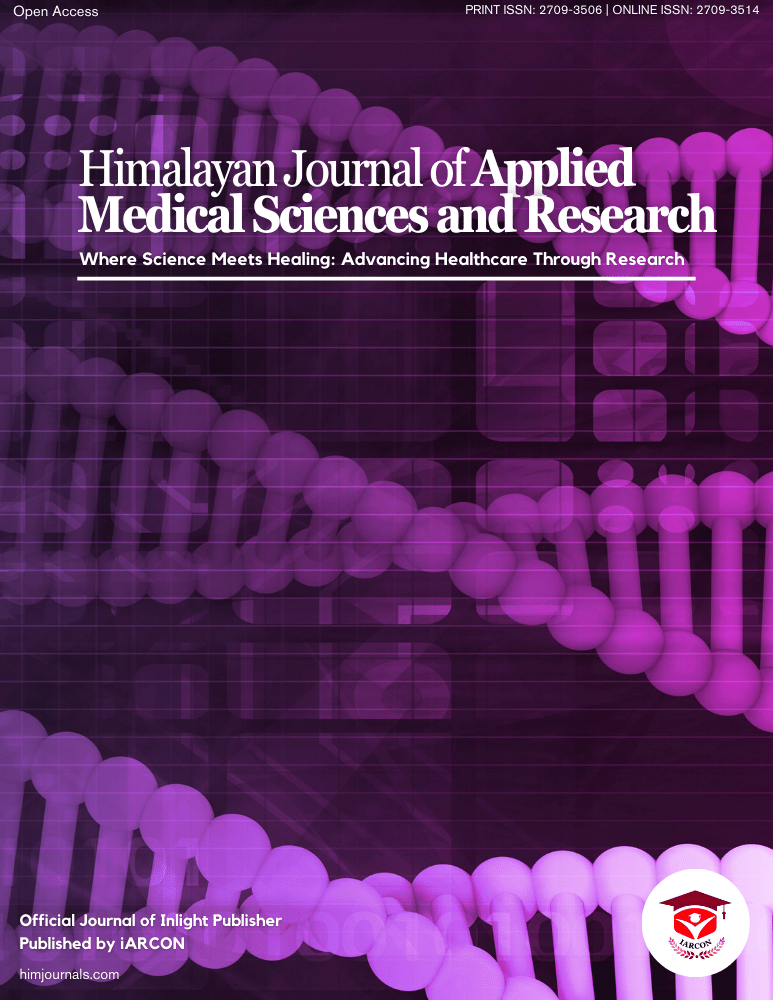APA
Khater, L., Reda, L. A., Kanso, K., Gemayel, G., Dana, R., Merhi, B. A. & Kalach, Z. H. (2021). The Impact of Rotavirus Vaccination on Disease Burden among the Lebanese Infants and Children under 5 Years Old who have been Diagnosed with Acute Gastroenteritis from Year 2016 to 2017. Himalayan Journal of Applied Medical Sciences and Research, 2(1), 1-9.
MLA
Khater, Lana, et al. "The Impact of Rotavirus Vaccination on Disease Burden among the Lebanese Infants and Children under 5 Years Old who have been Diagnosed with Acute Gastroenteritis from Year 2016 to 2017." Himalayan Journal of Applied Medical Sciences and Research 2.1 (2021): 1-9.
Chicago
Khater, Lana, Laudy A. Reda, Kamal Kanso, Gladys Gemayel, Rouwayda Dana, Bassem A. Merhi and Zeinab H. Kalach. "The Impact of Rotavirus Vaccination on Disease Burden among the Lebanese Infants and Children under 5 Years Old who have been Diagnosed with Acute Gastroenteritis from Year 2016 to 2017." Himalayan Journal of Applied Medical Sciences and Research 2, no. 1 (2021): 1-9.
Harvard
Khater, L., Reda, L. A., Kanso, K., Gemayel, G., Dana, R., Merhi, B. A. and Kalach, Z. H. (2021) 'The Impact of Rotavirus Vaccination on Disease Burden among the Lebanese Infants and Children under 5 Years Old who have been Diagnosed with Acute Gastroenteritis from Year 2016 to 2017' Himalayan Journal of Applied Medical Sciences and Research 2(1), pp. 1-9.
Vancouver
Khater L, Reda LA, Kanso K, Gemayel G, Dana R, Merhi BA, Kalach ZH. The Impact of Rotavirus Vaccination on Disease Burden among the Lebanese Infants and Children under 5 Years Old who have been Diagnosed with Acute Gastroenteritis from Year 2016 to 2017. Himalayan Journal of Applied Medical Sciences and Research. 2021 Jan;2(1):1-9.


